I promised you all that I would never write about chess drama again in my last piece. I lied, because today Chess.com came out with their statement. But before we get into that, did you know that there is TOP URGENT info that Hans Niemann cheated?
The above video claims to prove that Hans Niemann has 2500 elo strength. Originally it was titled “TOP URGENT! Strong EVIDENCE of CHEATING has been found on NIEMANN’S Controversy,” and it’s exactly what you’d expect. In this analysis by a “data scientist,” he arbitrarily selects a portion of Hans Niemann’s games, only to conclude that Niemann is actually playing… worse than he ought to be.

The gist of his argument is that Niemann’s Average Centipawn Loss (ACL) as calculated by Stockfish shows that he played worse than four arbitrarily chosen other players at the same elo. Well actually it doesn’t show that, since he used different start and end points, but the claim that Niemann is playing worse than he ought to has never made any sense. It also directly conflicts with the troons “analysis,” which accused Niemann of using an engine for literally every single move.
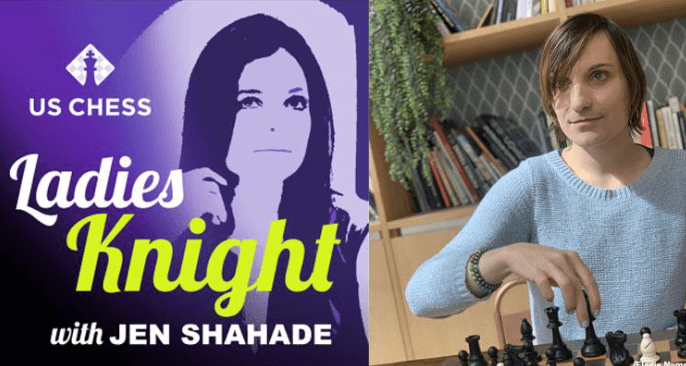
I gave that “analysis,” if it can even be called that a far more in depth deboonking than it deserved, because the entire premise was idiotic. No one with any amount of intellect would use an engine to cheat on every single move. Instead, you’d use an engine to cheat on just a few important moves here or there.
But I’ll explain how chess cheating actually works more after we get to Chess.com’s statement, since they have the first non-idiotic accusations against him. The first part of their report is the strongest, and covers Niemann’s admitted history of online cheating.
Wall Street Journal Archived Link:
The report, reviewed by The Wall Street Journal, alleges that Niemann likely received illegal assistance in more than 100 online games, as recently as 2020. Those matches included contests in which prize money was on the line. The site uses a variety of cheating-detection tools, including analytics that compare moves to those recommended by chess engines, which are capable of beating even the greatest human players every time. The report states that Niemann privately confessed to the allegations, and that he was subsequently banned from the site for a period of time.

There have been a lot of people who are interested in this drama who have asked basic questions such as “how would you even cheat in chess?” I simply assumed that anyone interested would already know this, but let me explain the basics.
Any software that exists to play chess is called a chess engine. For a very long time the best human players were much stronger than the best engines, running on the best hardware available. But in 1997 IBM’s Deep Blue, running on custom hardware built by IBM, squeaked out a win versus Garry Kasparov.
This win was highly misleading. Kasparov had played quite poorly, and six years later he drew in two matches versus even stronger chess engines. However, the engines improved year by year, mostly due to more sophisticated programming, but also due to hardware performance improvements. 2005 was the last time a human, former World Champion Ruslan Ponomariov, beat a top chess engine, in that case a version of Fritz.
Since then the engines haven’t looked back. The Elo ratings of the best chess engines are currently almost at 3,900, over 1,000 rating points higher than the best human players. While a draw is theoretically possible, it is unlikely that any human player can withstand Stockfish 15, or any other top engine, with either colour pieces, and would likely lose every game. Over the course of a long game the engine will make consistently better moves and eventually generate a winning advantage, assuming the human player doesn’t blunder at some point. Even that requires an asterisk, as what the engine considers a blunder may be some extremely complicated line that makes little sense to even the top GMs.
Having said that, anyone can make any move, and even weak players will very often play the strongest moves as recommended by, say, Stockfish 15 running at high depth, because often times the best move is quite obvious. However, there will always be a few moves over the course of a game where it can be extremely difficult to decide between move A or move B, and yet the game may be winning or lost based on which move is played.
If we use an engine on just a few crucial moves per game that should give us an enormous improvement in our winning percentage, and eventually rating. This is also quite difficult to detect without rigorous statistical analysis, as we will always be able to justify our decisions, and, especially if done only in one game, no one could possibly know that we didn’t simply luck out and play the best of two or three candidate moves.
I decided to play a 15|10 game on Chess.com to show theoretically how someone could get a huge advantage with just a small amount of cheating. No, I didn’t cheat myself, I’m just using this as a case study.
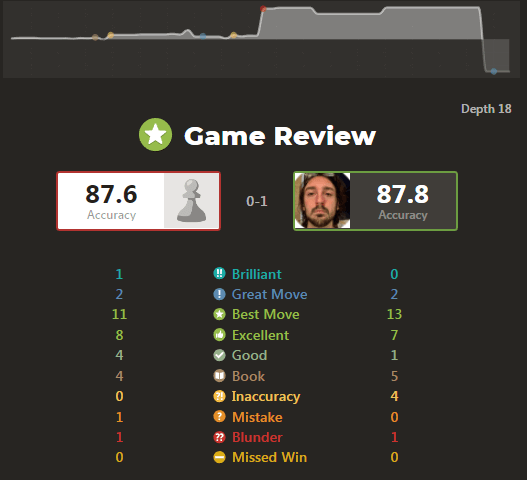
This was certainly a weird game, with us both playing the opening decently, me blundering in the middle game, and him blundering horribly in a three pawn up queen endgame. Ironically I began to become extremely suspicious of my opponent, in part because of his strong moves, and in part because of his extremely weird time usage.

Lichess, using Stockfish 14 at an unknown depth, gives similar analysis, although it finds more inaccuracies in my opponents play. It also doesn’t tell you how many of our moves were considered best by the engine used, although it works out to roughly 40% for both of us with Chess.com’s analysis. My point is that playing the engine’s top recommended move quite often is not unusual, even for two 1800 players.
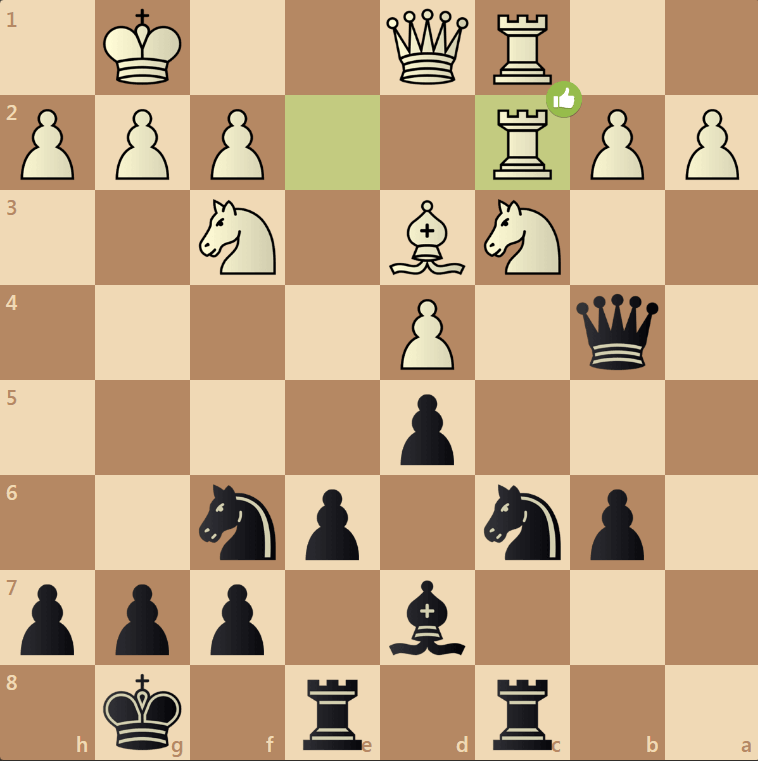
The game opened with me as black and playing the Caro-Kann. I had a fine position, with white having a slight advantage, before I miscalculated and blundered in the above position. I was even thinking that this would be a great position to use an engine in, because the move I wanted to play feels somewhat dangerous. As it turns out, I was right to be worried.
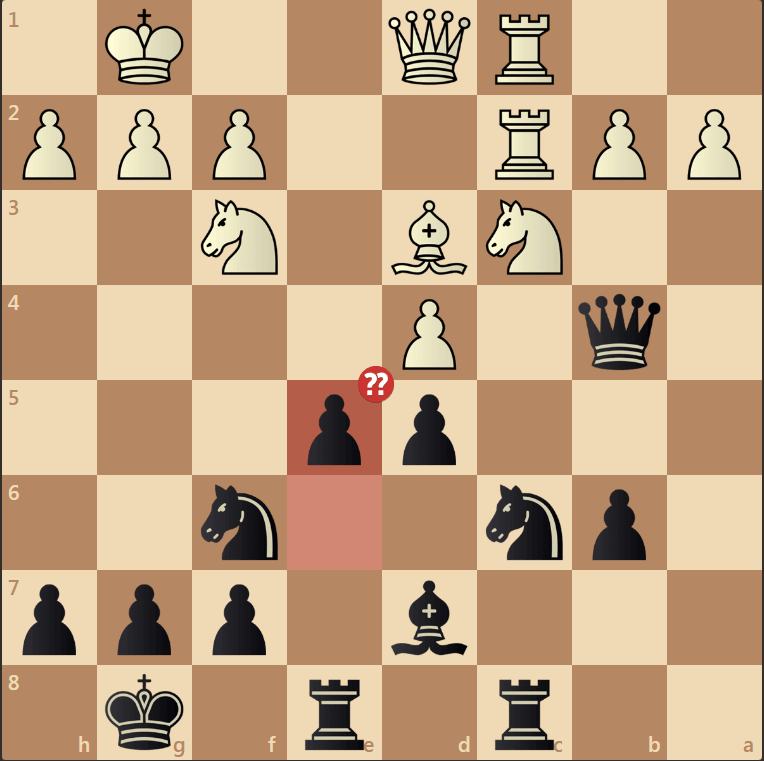
I had wanted to free my light squared bishop with the natural e5, but this is quite the bad move. Try to find out why before looking below. Not every single move is screencapped, so it might not make sense to you if you haven’t already tried working it out.
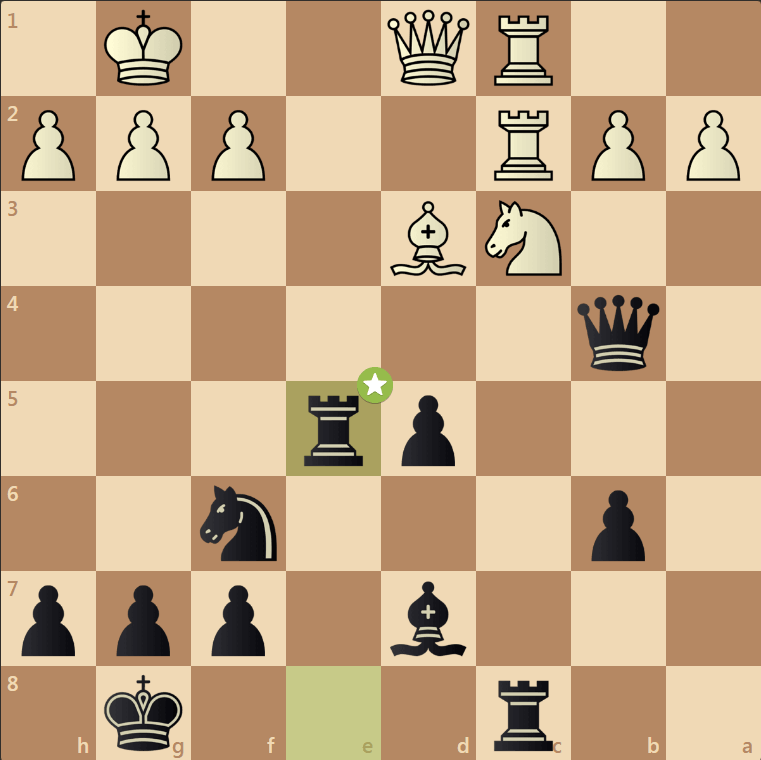
The end of the exchanges on e5.
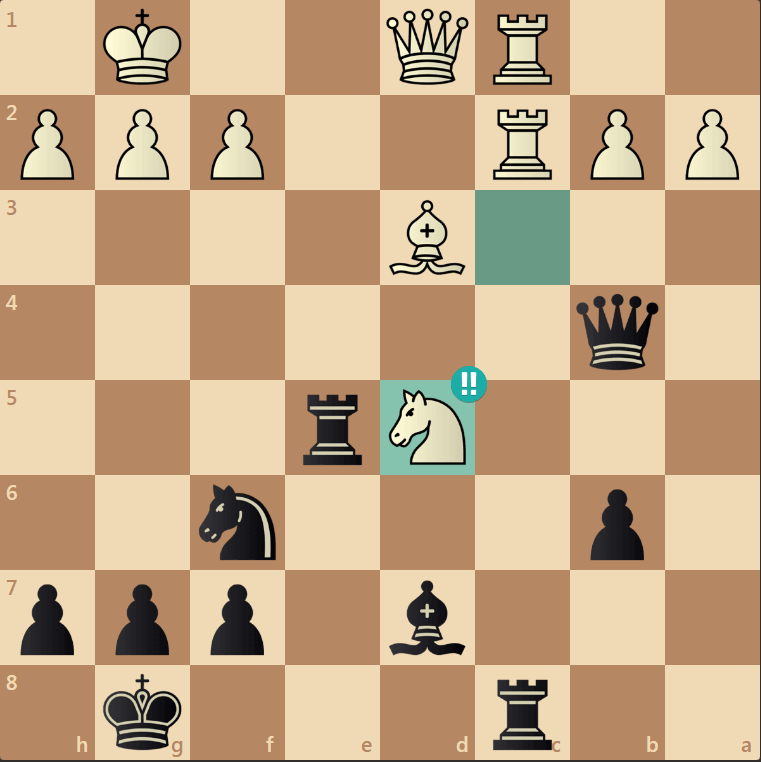
Allows the tactic Nxd5, attacking the queen on b4 and the rook on c8.
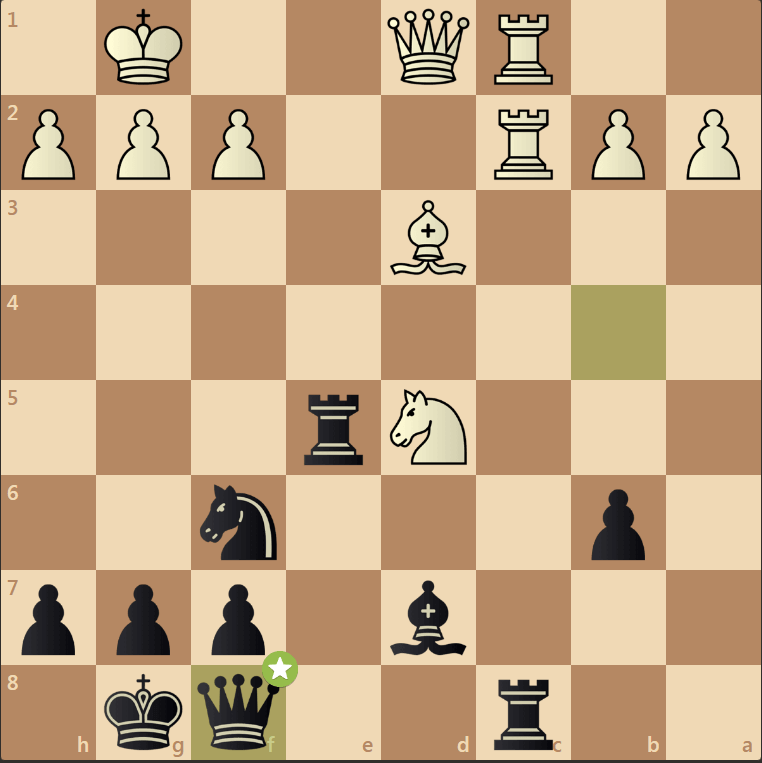
Which forces the very sad Qf8.
I played all the best moves after my blunder, but I was forced to retreat my queen to f8 in order to avoid huge material loss. Even still I was left down two pawns with a worse structure after he exchanged the knights, and then played the fairly easy to spot tactic with Bxh7+, winning another pawn and my bishop on d7.
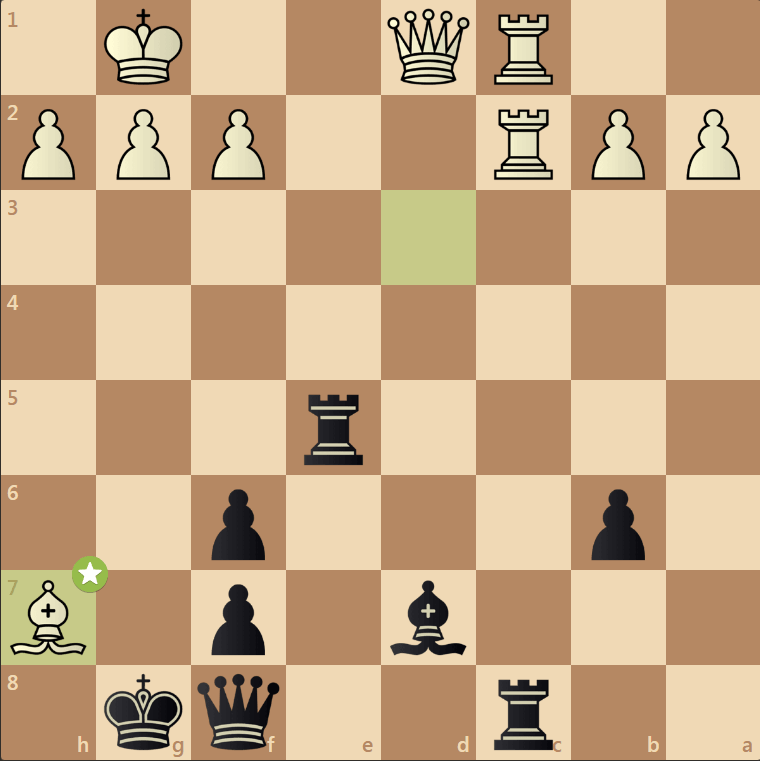
A discovered attack on the bishop on d7.
I wasn’t too suspicious after he played the start of his winning combination. It was one of those times where you see your blunder as soon as you make it. I was however getting weirded out by the very consistent time usage for his play, where some very obvious moves were made with the same ~15-30 second time usage as much more difficult tactics.
NOTE: Bxh7+ is not so simple, since you must have Qd3+ below, or you simply lose a rook due to back rank mate threats. None of these moves are impossible to find, but it’s a bit odd that he wouldn’t play something safer like h3 or Rxc8 first. Yes, Rxc8 means you can’t win the h7 pawn, but it’s much safer. And again, the consistently short time usage for this fairly sharp (for 1800s) position made me very suspicious.
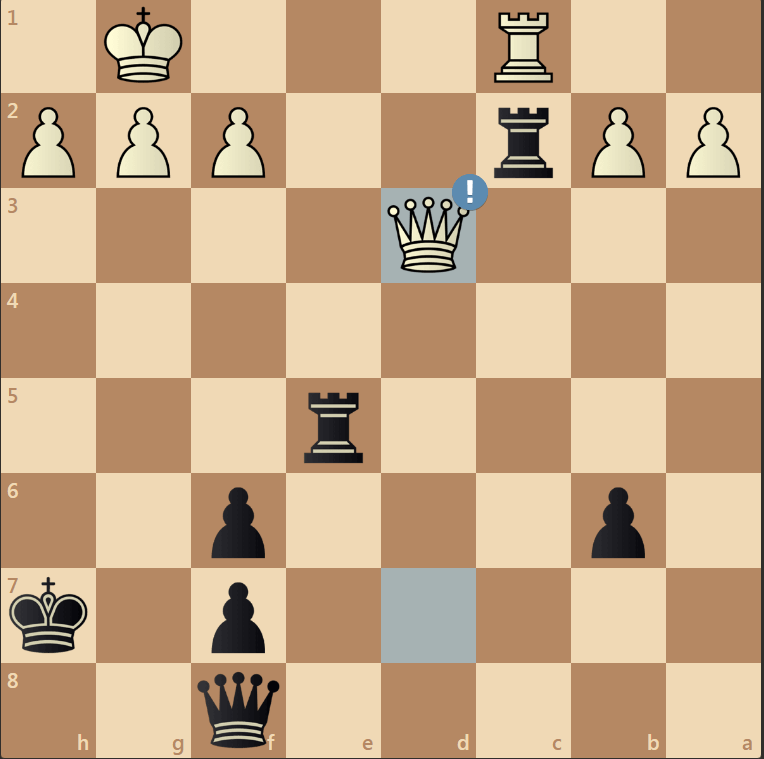
Take the above queen fork. This saves him from a lost position, since he can’t recapture my rook with his or he gets back rank mated after Re1#. He played the tactic in just thirteen seconds. But then the simple recapture took him 32 seconds.
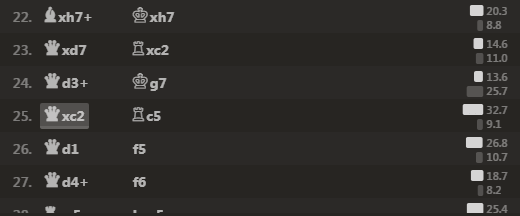
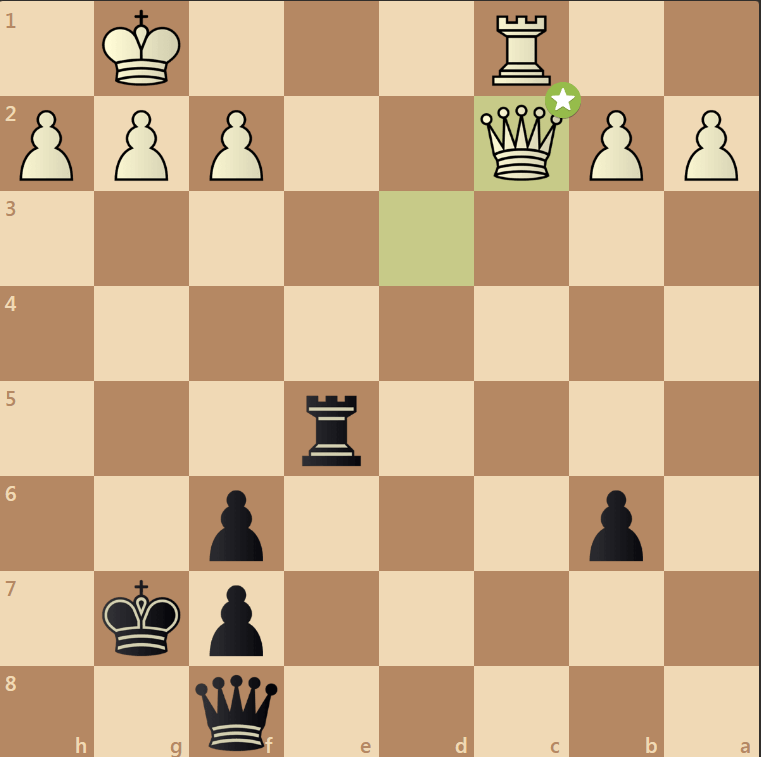
32 seconds for this? When this was the whole point of Qd3+
My position is now hopeless, and I can resign. A queen endgame down two pawns, and with shattered pawn structure with no passed pawns should be an easy win for an almost 1900 player. My only possible hope is for him to blunder back rank mate, or some queen skewers. Considering his perfect tactical awareness thus far, this does not seem likely.
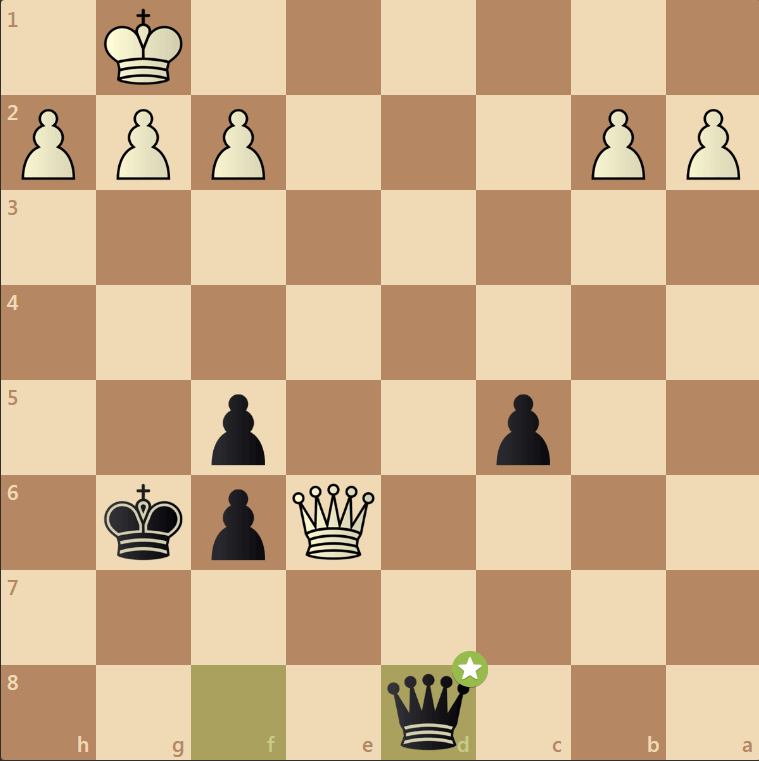
I scooch the queen over to d8, threatening Qd1#.
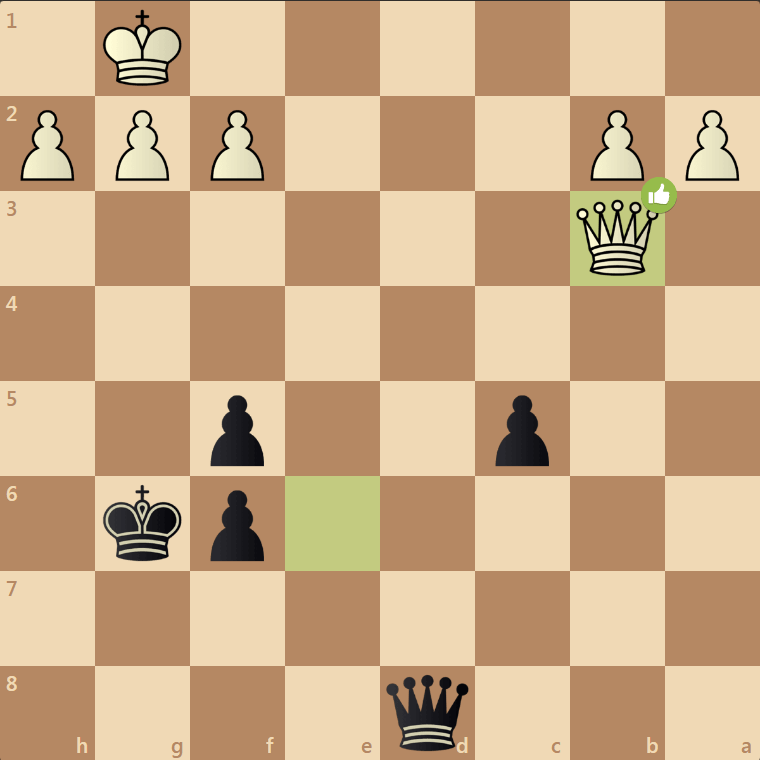
He stops this in a sort of odd way, covering the square with Qb3. Almost any pawn move in front of his king seems more natural. Alternatively, Qe1 shuts down back rank threats for good.
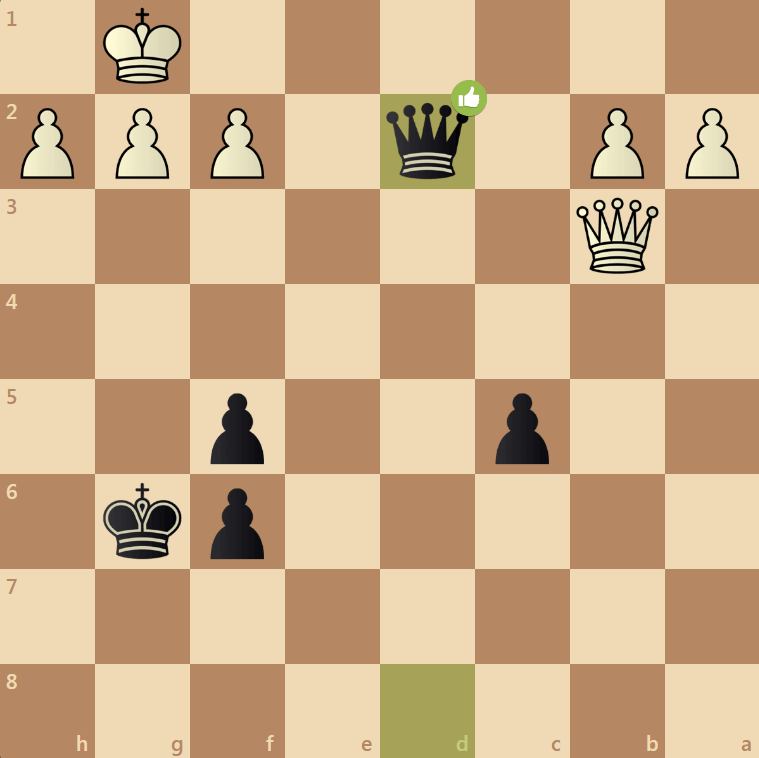
I threaten back rank mate again.
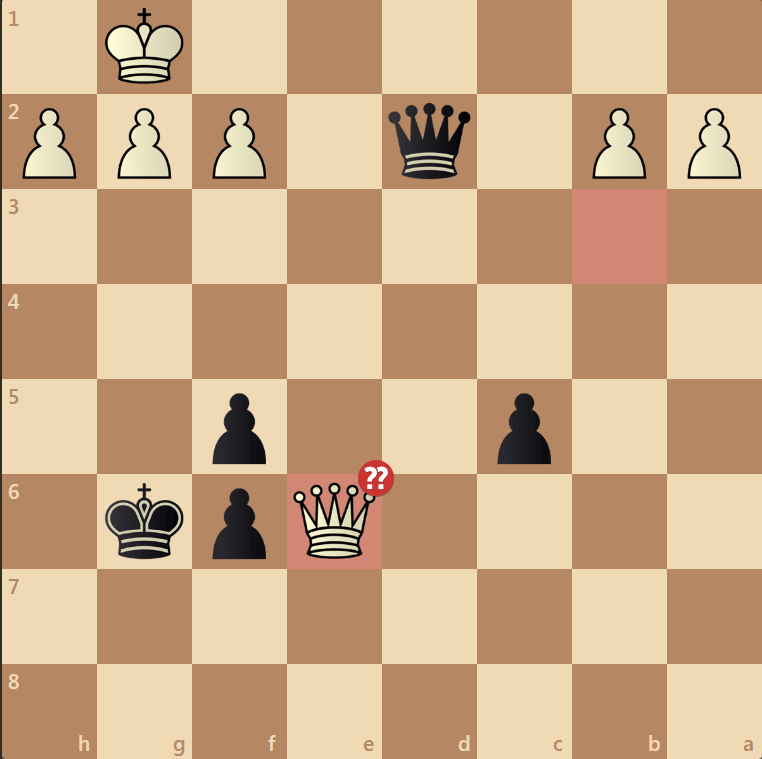
And he plays the inexplicable Qe6????
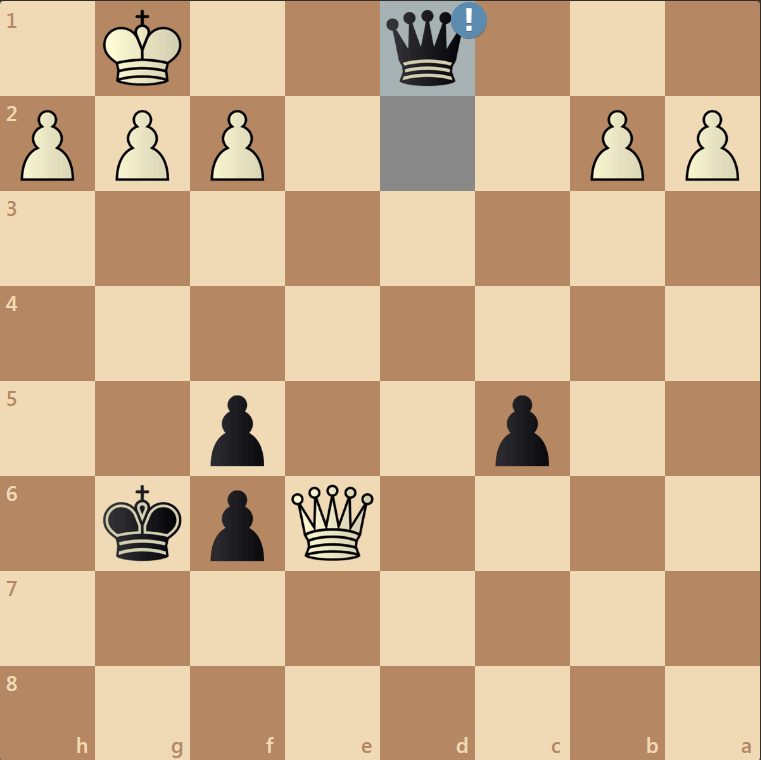
So did he cheat, only to lose after turning off the engine or even intentionally so as to throw off cheating suspicions, or was I being paranoid? My thinking is the latter, but it’s amazing the psychological impact of thinking your opponent is cheating. I wanted to have a normal game that shows how cheating could be beneficial, and I accidentally got a game that shows how easy it is to be paranoid others of cheating, especially online.
I had a good suspicion that my opponent was cheating, until he blundered back rank mate. Even after that I have some tiny suspicions, but sometimes people use a lot of time to make simple moves because they’re calculating something deeper, or even just had someone come knock at the door or some other IRL distraction. Sometimes they can make tactically deep moves because they see it immediately, or thought on their opponents clock. Sometimes people can see a threat, like back rank mate, and then inexplicably miss it the next move. It does happen.

Getting back to my blunder, I would never have made this move if I was using an engine. The best move in this position, taking back my e5?? is Qa5, which I was considering playing, along with Qe7, which is also a good move. If I saw the engine tell me to play either, I could easily justify this, and if I saw that the evaluation was +5.7 (meaning I’m losing) after e5, I could have easily figured out tactically why it doesn’t work. If someone asked me in a postgame analysis what I was thinking, I could clearly enunciate my reasoning behind everything that I played.
Niemann last month questioned why he was banned from the Chess.com Global Championship, a million-dollar prize event. Shortly thereafter, Rensch wrote a letter to Niemann explaining that “there always remained serious concerns about how rampant your cheating was in prize events” and that there was too much at stake. The letter added that Niemann’s suspicious moves coincided with moments when he had opened up a different screen on his computer—implying that he was consulting a chess engine for the best move.“We are prepared to present strong statistical evidence that confirm each of those cases above, as well as clear ‘toggling’ vs ‘non-toggling’ evidence, where you perform much better while toggling to a different screen during your moves,” Rensch wrote.
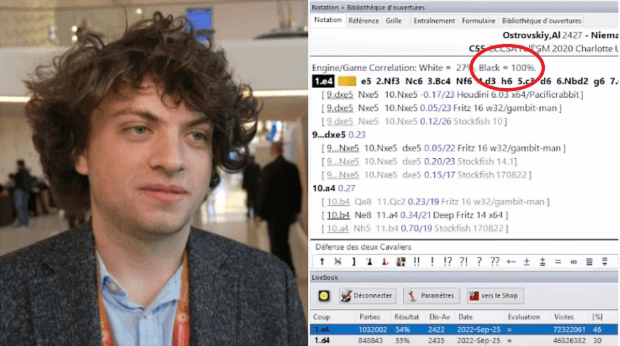
All of this finally brings us back around to Hans Niemann and how he cheated. Over the board (OTB), there’s no evidence that he cheated. Online he’s confessed to cheating, and his methodology appears to have been pretty simple. He just had an engine running in the background and he looked at it when he wanted the best moves. Alternatively he had someone else doing this and messaging him the moves.
This makes a ton of sense to me. There have been lots of top grandmasters caught cheating in online chess, especially during Covid-19, when they couldn’t make money playing chess IRL. Another cheater, GM Tigran Petrosian, who I need to add is not the former World Champion but a different player of the same name, was caught looking down at his phone during games where he played unusually strong moves.
Cheating online is a serious plague upon chess, even if sometimes it’s funny how obvious the cheaters are. Here we see Pooja slaughter GM Eric Hansen’s Scandinavian defense, and in doing so they show an extreme example of how cheaters get caught.
Anyone who cheats some of the time will appear to have two strengths, one when cheating, and one when not cheating. The above idiot is a 400 Elo player, who all of a sudden starts playing exactly like Stockfish 14 against Eric Hansen, a 2600+ GM. This jump in quality of play is so large that we can detect it over just one game, or even part of a game. The more subtle cheating I describe above can in fact be detected statistically, since you will appear to have two strengths, one when cheating, and one when not cheating. This is what Ken Regan did for Niemann’s OTB games since 2020, where he found that Niemann is either cheating in literally every single game, even the ones he loses horribly, or he’s legitimately a 2700+ strength young player. The latter is confirmed by people who have played against blitz against him informally face to face.
Chess.com claims that four of the top one hundred chess players on their site have been caught cheating, so this isn’t just very poor players obviously destroying GMs and having no ability to explain their moves. They claim that Niemann did exactly this subtle cheating online that I proposed earlier in quite a few matches against top level GMs, some of which was done online.
*I’m going to call this lifeline-cheating from here on out, where once or twice per game you send out a lifeline to your good friend, Stockfish, and see what he has to say*
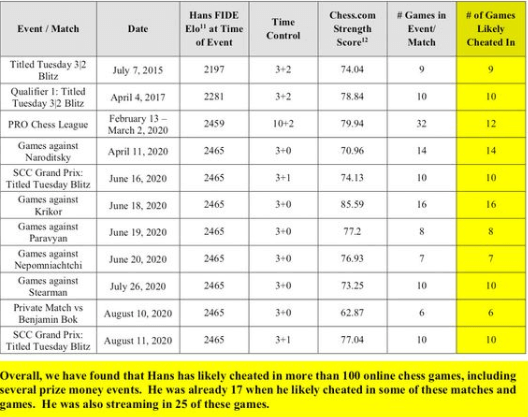
100 games over a 5 year stretch. Not an enormous amount, but far from nothing.
Before I move on to this, I would just like to point out that the Strength Score Chess.com gives Niemann for these games, in many cases all of which are claimed to be cheated, is nowhere near 100%, as that trannies totally fraudulent analysis pretended to show. You can be lifeline-cheating in every game and still play nowhere near as good as the engine. You don’t have to, especially at the faster time controls, which is all of these games. That’s why it was such an idiotic claim to make even before we deboonked the fraudulent “proof.”
More relevant to this issue is that Chess.com is directly contradicting Niemann’s claims to have only cheated twice, once at age 12, and once at age 16. They’re claiming that he cheated just after his seventeenth birthday for the last time, and did in fact cheat for money. Honestly, I suspected this was the case right from the very beginning, and if I could be so bold as to quote myself from my last piece.
Hans Niemann cheated online. That’s plenty reason for the chess world to hate him, and I’m not all that interested in defending him for his own sake. Having said that, what’s happening here is absurd. The chess world champion has a bitchfit after losing to him in a game where Hans obviously did not cheat.
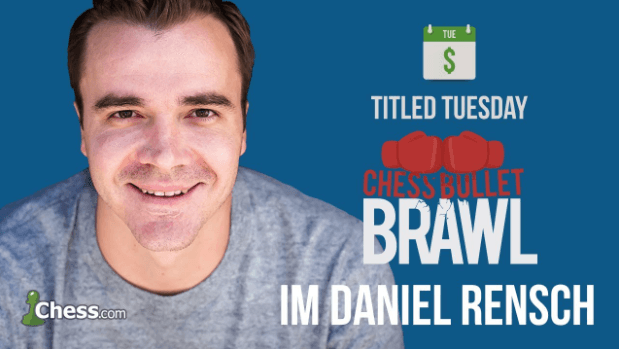
Niemann is not the only top GM to be caught cheating, but if Chess.com and Magnus Carlsen simply said “that’s it, fuck cheaters, and if you ever get caught you’re not invited to any of our events or playing against Magnus Carlsen,” that would be one thing. Instead, Chess.com, who really pissed me off with their blatant support of BLM in 2020, invites Niemann to a big online event they have despite knowing he cheated online two years ago. However, after the World Champion has a bitchfit after losing to Niemann in a game where it is obvious to everyone but Magnus Carlsen that Niemann did not cheat, they now, all of a sudden, are disinviting him because he cheated in the past.

Well it’s not really that confusing. Carlsen probably told them that he wasn’t playing in their tournaments if Niemann was there, so they booted Niemann. Except Carlsen isn’t enough of a man to admit to this, so we have to speculate. Chess.com may have simply ridden the bandwagon and done this of their own volition, but it’s bitchy either way.
The 72-page report also flagged what it described as irregularities in Niemann’s rise through the elite ranks of competitive, in-person chess. It highlights “many remarkable signals and unusual patterns in Hans’ path as a player.”
While it says Niemann’s improvement has been “statistically extraordinary.” Chess.com noted that it hasn’t historically been involved with cheat detection for classical over-the-board chess, and it stopped short of any conclusive statements about whether he has cheated in person. Still, it pointed to several of Niemann’s strongest events, which it believes “merit further investigation based on the data.” FIDE, chess’s world governing body, is conducting its own investigation into the Niemann-Carlsen affair.
“Outside his online play, Hans is the fastest rising top player in Classical [over-the-board] chess in modern history,” the report says, while comparing his progress to the game’s brightest rising stars. “Looking purely at rating, Hans should be classified as a member of this group of top young players. While we don’t doubt that Hans is a talented player, we note that his results are statistically extraordinary.”
I was very interested in seeing their evidence for Hans being the “fastest rising top player in Classical chess.” To prove this, they give us this graph.
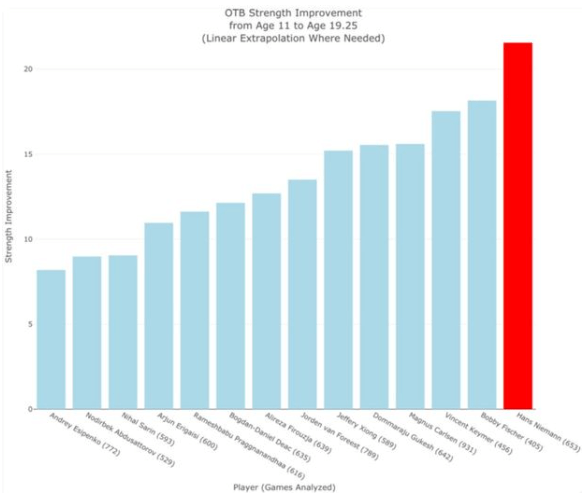
Here we see that Niemann’s OTB strength improvement from age 11 to age 19.5 is… 22.

“What the fuck is 22 supposed to mean?”
It’s at this point where the attack on Niemann appears to go completely off the rails. But maybe the WSJ just messed up, and Chess.com’s arguments for Niemann cheating OTB are much more coherent. To see if that were true, I had to get my hands on the actual report.
Despite the public speculation on these questions, in our view, there is no direct evidence that proves Hans cheated at the September 4, 2022 game with Magnus, or proves that he has cheated in other OTB games in the past.
That said, as set forth more fully below in Section X, we believe certain aspects of the September 4 game were suspicious, and Hans’ explanation of his win post-event added to our suspicion. As to his OTB play more generally, in Section VII below we discuss what we believe are apparent anomalies in Hans’ rise in OTB rating. Of note, we discuss how Hans became the fastest rising top player in Classical OTB chess in modern recorded history much later in life than his peers and did it after we had removed him from playing on our site in 2020.
So they do make it clear that they don’t have any smoking gun that Niemann has cheated OTB. Instead they do this thing where they throw up their hands and say “coincidence,” as they insinuate that Hans has cheated, and try to pretend that Carlsen’s bitchfit about losing is somehow justifiable.
Outside his online play, Hans is the fastest rising top player in Classical OTB chess in modern history.
The bold in this case was added by them. They would very much like you to believe that Niemann has had the fastest ratings increase for any top player in modern history. And this is very true if you have a totally arbitrary definition of all the words in that previous sentence.
As set forth in Table 3, between 2014 and 2022, Hans’ OTB Classical Strength Score (according to Chess.com’s Strength Score) increased from 67.79 to 90.90 (weighted slope of 2.67 per year). In comparison, Alireza’s strength score only increased from 77.41 to 91.33 (weighted slope of 1.61 per year) during the same period. Hans is consistently above many contemporaries in strength increases, even though he has only recently shown the same caliber of play. Likewise, as set forth in Figures A and B below, Hans had the fastest and biggest increase in his score over time in comparison to his peers and other notable players, when considering all of their known Classical OTB games played from age 11-19.
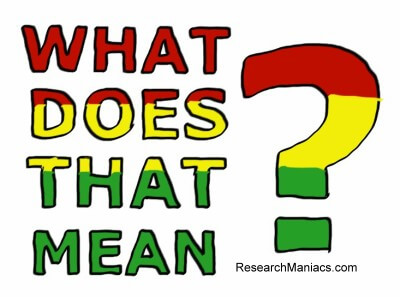
Well before we explain what this means, let’s look at more of their evidence.

Here we see Niemann improving in strength somewhat more than the other players of roughly his age starting from 2014. Why do we start from 2014, and not 2016, or 2012? Well because if we started from a different year we wouldn’t get get Niemann being the fastest improving young player, and we can’t be having that now can we?
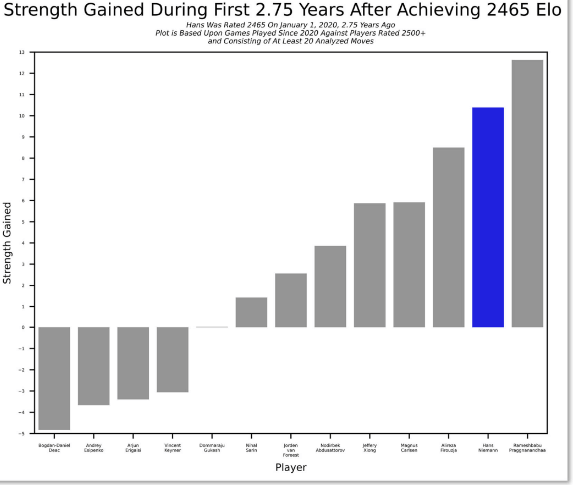
2.75 years???? 2465 Elo????
Even more shocking, Hans Niemann has gained the… second most playing strength in the 2.75 years after reaching 2465 elo.

You might be wondering why we’re starting from 2465 elo, and looking only at 2.75 years afterwards. Well we don’t know, because Chess.com never even pretends to justify these obviously arbitrary start and end points. Yet, despite using these comically arbitrary start and end points, Niemann is only the second fastest improving young player, behind Indian GM Rameshbabu Praggnanandhaa.
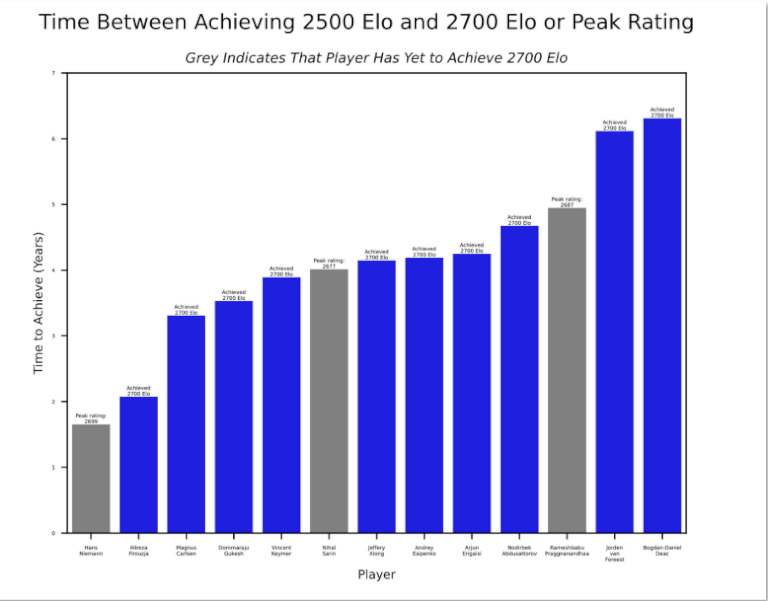
Finally we get to an actually interesting graph, which shows Niemann taking the shortest time period to go from 2500 elo to 2700, with the only other close player being Alireza Firouzja. They don’t mention that Niemann’s 2500 to 2700 journey coincides with him being stuck under 2500 due to Covid, and presumably becoming very underrated. They also don’t bother telling us how many games were played, which would be the actual relevant statistic. It’s also just a slightly less arbitrary start and endpoint, but whatever.
Finally, they show that Niemann’s rise to 2700 wasn’t as smooth as other chess prodigies, with two noticeable plateaus.
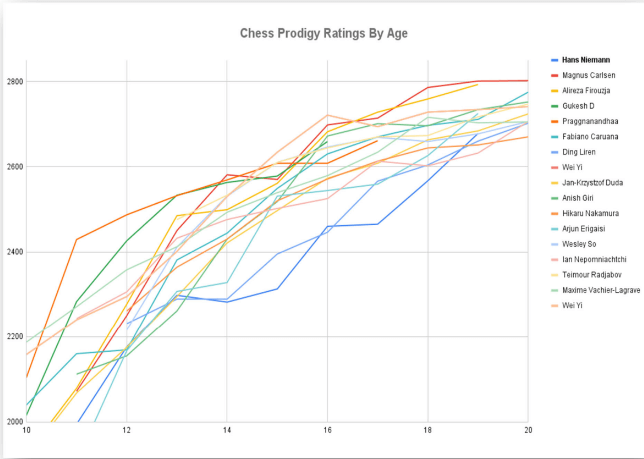
They then reiterate and mention that he became a GM at age 17, without mentioning that GM norms are somewhat randomly obtained, and he couldn’t play as much chess due to Covid-19.
As set forth in Table 4, another key data point that informed our analysis is the fact that there are 13 players currently ranked in the world’s top 50 players who are younger than 25. Hans is the only player who became a GM at age 17. The other 12 players all achieved the title between ages 12 and 16.
But let’s pause and take a minute to try and figure out what Chess.com is even claiming since they do this really annoying and effeminate “I’m just asking questions here,” routine without getting to the point. Is Chess.com alleging that Niemann is not in fact truly a 2700+ strength player? If so, they should come right out and say it. Because if they’re alleging that he is truly a 2700+ strength player, then it doesn’t matter how unusual his path to his current rating was, considering that he’s simply appropriately rated.
The only possible argument could be that Niemann is legitimately a 2700+ strength player, which everyone who plays against him face to face appears to think, but that he cheated to get his true rating faster. But it’s hard to know what Chess.com is saying, since they don’t actually say anything other than this weasely “boy if we use arbitrary endpoints it looks like he’s made inexplicably rapid chess improvement.”
Does Hans have an unusually shaped plot of games based on Strength Score?
A player who plays differently at different times might show two separate distributions of game strength, which might look more like two “lumps” (bimodal), not an even distribution (unimodal). Hans’ distribution graphs look similar to those of his peers, with a fairly simple, and apparently unimodal distribution.
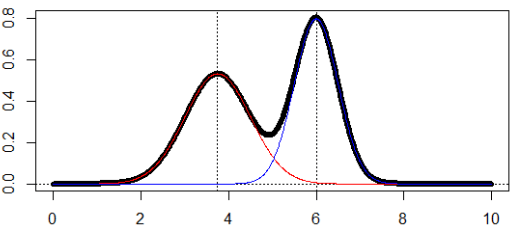
Bimodal distribution.
Chess.com finally gets around to the analysis that I did in five minutes in the last piece, and which I pointed out again earlier in this piece. Niemann is just flat out not cheating, at least as measured by statistical analysis. But they even go one further and deboonk their own concerns over his supposedly irregular elo growth.
The data, based on Chess.com’s Strength Score in Hans’ games and events, does not necessarily indicate a step-wise progression that you might see if a player suddenly went from one level of strength to another. We graphed his performance in events, by Strength Score, over time, and compared it to his peers in

They cut off their own sentence in their report, but the important part is there. Niemann has the gradual, steady improvement we would expect from a young player. His Elo appearing to plateau is an illusion brought on by a string of poor luck, as opposed to poor play.
There has been some analysis posted online suggesting Hans has played an abnormally high number of perfect games. We have carefully analyzed many other presentations found online that claim to have found potential evidence of cheating, including asserting that Hans has played more “100%” games, etc.
We have concluded that the methodology and the underlying tools used in those analyses do not meet our standard.

Chess.com throws the tranny Yosha Iglesias and his hilariously fraudulent analysis of Niemann’s games under the bus. But they don’t stop there.
Therefore, Chess.com gathered all of Hans’ and other related players’ games from 2020 onward played against 2500+ rated players, and removed any games we determined were lacking sufficient measurable observations (based on our process of removing known book moves and some simple endgame moves), and then measured the percentage of those games which were above 100 on our Strength Score. Based on this analysis, and as shown in Figure I, Hans actually has one of the lower percentages of “near perfect games” when compared to similar players.
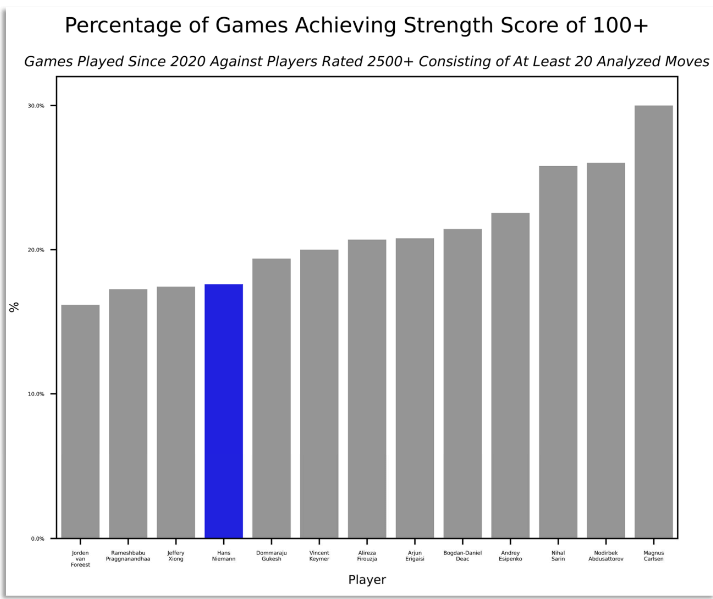
So it turns out that the whole “Niemann has the only 100% engine correlation (whatever that means),” spiel wasn’t just misleading, it was completely made up from nothing. Again, no one would ever cheat so blatantly unless they were a complete moron, but it’s nice to have even more confirmation that the mentally unstable guy wearing a dress who didn’t appear to have a basic understanding of statistics was not to be taken seriously.

Yuck
In conclusion, while we cannot definitively prove that Hans’ rise in strength is entirely “natural,” we have also found no indications in the game data to suggest otherwise. While some have suggested that a move-by-move analysis by humans may surface some oddities in move choice or analysis, there is nothing in our statistical investigation to raise any red flags regarding Hans’ OTB play and rise.
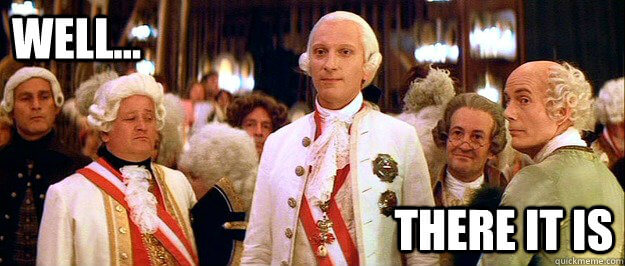
That conclusion doesn’t seem to leave much room for Magnus Carlsen’s temper tantrum to be taken seriously. I’m not even here to defend Niemann, who I personally find to be somewhat annoying, but the claim that he was cheating OTB was a big one. OTB cheating, while possible, is a lot harder than opening up stockfish on a different monitor while sitting in the comfort of your own home, which is what he did online. Chess.com finally gets around to admitting that there’s no evidence he did any OTB cheating, but they start off by insinuating that Niemann had some weird ratings growth before they get there.
However, there is another form of evidence against Niemann. That would be Magnus Carlsen whining a lot.
Several days later after returning to Norway, Magnus shared in a private conversation that his experience in playing Hans was “unlike a game he’s ever had.” He emphasized that he has competed against numerous prodigies and players who “exert” themselves and show great effort throughout a long, difficult fight like this game. He described Hans’ level of exertion as “effortless” and felt he never had a chance to get back in the game, which was extremely unusual for Magnus who is known for his resourcefulness. Hans’ lack of emotion or excitement about the result was also noted by several others.
Below are examples of the reactions of notable players who have beaten Magnus:
- Esipenko: https://www.youtube.com/watch?v=iZsK96-mASY
- Duda: https://youtu.be/pzoUVQh-l2g?t=1861
- Pragg: https://youtu.be/6tc0j802idk?t=165
- Niemann: https://youtu.be/TkUkvLqHfZM?t=16815

You. Have. Got. To. Be. Fucking. Kidding. Me.
The analysis here is that Magnus Carlsen didn’t feel like Niemann was putting in enough effort, and Carlsen felt like he didn’t have any chances to get back into the game.

Well guess what, he totally did have multiple chances to draw the game due to Niemann’s poor play but instead of finding them, he simply goes and whines in public about how he felt like he wasn’t given the chances that he feels he deserves as World Champion, even though he was.

The arrogance and pettiness just blows my mind. In case you’re forgetting the game itself, here’s the engine analysis.

Why is anyone tolerating this behaviour from Magnus Carlsen? Chess.com does a rigorous statistical analysis of Niemann and concludes that there is no evidence that he cheated in OTB play, but because Carlsen has lots of clout everyone is supposed to pretend that his feelings are now reality. Like, Yosha Iglesias thinks he’s a woman, but he isn’t. And Magnus Carlsen thinks he wasn’t given any chances to hold his game against Hans Niemann, but he was. He also thinks that he played really well in that game, but he didn’t.
We’re then left with an accusation that might be even dumber, which is that Niemann was apparently not excited enough after beating Carlsen. They even link to the video of multiple young players beating Carlsen, most ridiculously the one of Prag above, where the commenters can be heard quite literally saying:
He [Prag] is not feeling anything. He is so relaxed.

This is then compared to Hans Niemann who is apparently not enthusiastic enough about beating Magnus Carlsen in a long time format game where he knew he was winning a dozen moves prior.
Am I getting through to you people just how absurd this whole fiesta is? The Chess World Champion is temper tantruming up a storm, and the chess world is going along with it because he has a lot of clout and can make or break any tournaments success by showing up, or refusing to do so.

Well that’s it for Chess Drama. A lot of supposedly intelligent people are revealed as being petty, spiteful people who can’t do math. Bobby Fischer had something to say about this.

Well not that. I mean, I agree with you Bobby, but I’m talking about your quote on chess players themselves.
I really don’t like chess players in general. They are not my kind of people. They are very petty. They’re mean minded, petty, small minded, and stupid.

You said it Bobby. It sure is a crazy place this world of chess. It’s like Mean Girls, but with chess players.

Makes me think that scientific fields are probably just the same. Maybe even worse, since chess players have to actually be good at chess, as opposed to scientists who can sometimes skate by on academic politics.

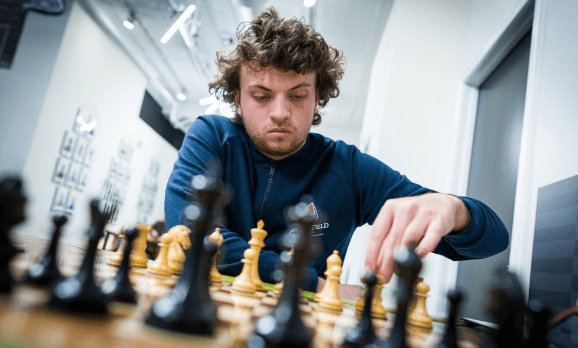



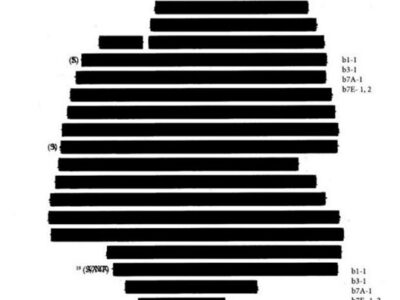








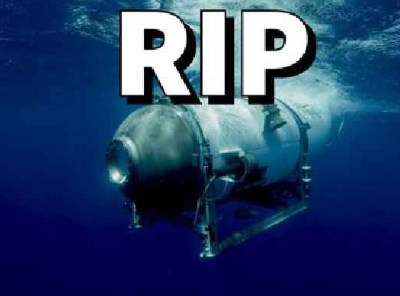

let’s just agree it was a cohencidence
The chess articles are some of my favorites, keep em coming champ!